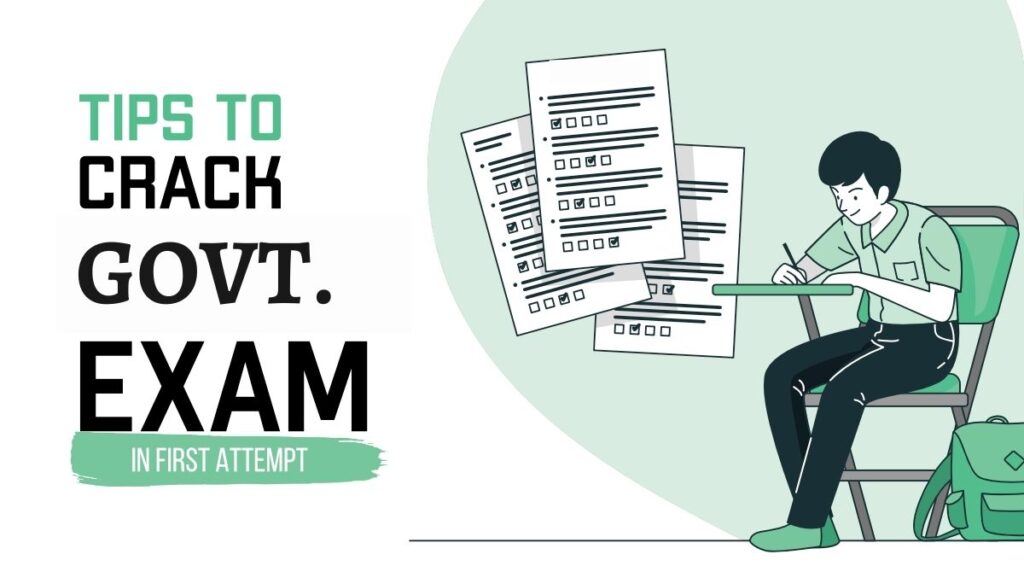Cracking a competitive exam on the first attempt is a dream for many aspirants. These exams are designed to be challenging, testing not only your knowledge but also your perseverance and strategic planning. Whether it’s for a government job, a university entrance, or a professional certification, the right approach can significantly increase your chances of success. This article outlines eight effective tips to help you prepare for and crack your competitive exam in the first attempt.
Understand the Exam Pattern
Before diving into your studies, it’s crucial to understand the exam pattern. Each competitive exam has a unique structure, including sections, types of questions, and marking schemes. Knowing this pattern helps you strategize your preparation effectively.
Analyze Previous Years’ Papers
Examining previous years’ question papers gives you an insight into the types of questions asked, their difficulty levels, and the important topics frequently covered. This analysis can guide your study focus.
Understand the Syllabus
A thorough understanding of the syllabus is essential. Break down the syllabus into manageable sections and create a checklist to ensure you cover all topics.
Create a Realistic Study Plan
A well-structured study plan is the foundation of effective preparation. Your plan should be realistic, balanced, and tailored to your strengths and weaknesses.
Set Achievable Goals
Set short-term and long-term goals. Short-term goals keep you motivated daily, while long-term goals help you stay on track with your overall preparation timeline.
Allocate Time Wisely
Distribute your study hours wisely among different subjects. Allocate more time to subjects or topics you find challenging and less time to those you are comfortable with.
Focus on Conceptual Clarity
Understanding concepts deeply rather than rote learning is key to excelling in competitive exams. Conceptual clarity helps you tackle application-based and higher-order thinking questions.
Use Quality Study Materials
Invest in good quality study materials and reference books recommended by experts or toppers. These materials often explain concepts more clearly and provide practice questions that mirror the exam pattern.
Attend Lectures and Online Courses
If possible, attend lectures or online courses that offer detailed explanations of complex topics. These resources can provide different perspectives and techniques for understanding difficult concepts.
Regular Practice and Revision
Consistent practice and timely revision are critical. Practice helps reinforce what you’ve learned and identify areas needing improvement.
Take Mock Tests
Taking regular mock tests simulates the exam environment and helps you manage time efficiently during the actual exam. Analyze your performance in these tests to identify weak areas.
Revise Periodically
Frequent revision prevents forgetting and strengthens memory retention. Create concise notes or flashcards for quick revision of key concepts.
Time Management Skills
Effective time management can make a significant difference in your exam performance. Practice managing your time both during your preparation and the actual exam.
Prioritize Tasks
Identify and prioritize tasks based on their importance and urgency. This approach ensures you cover high-priority topics first.
Avoid Procrastination
Procrastination is a major hurdle in exam preparation. Stay disciplined and stick to your study schedule to avoid last-minute cramming.
Stay Updated with Current Affairs
For many competitive exams, staying updated with current affairs is crucial. This is especially true for exams that include general knowledge or current events sections.
Read Newspapers and Magazines
Regularly read newspapers, magazines, and online news portals. Focus on important events, government policies, and economic changes.
Use Apps and Online Resources
Leverage apps and online resources that provide daily updates and quizzes on current affairs. These tools can make learning current events more engaging and effective.
Join Study Groups or Coaching Classes
Joining a study group or enrolling in coaching classes can provide additional support and resources. Interaction with peers and mentors can enhance your understanding and preparation.
Collaborate with Peers
Study groups allow you to discuss difficult topics, share resources, and test each other’s knowledge. This collaborative approach can uncover new insights and study techniques.
Seek Professional Guidance
Coaching classes offer structured courses, expert guidance, and regular assessments. They can help you stay disciplined and on track with your preparation.
Maintain Physical and Mental Health
Your physical and mental well-being plays a crucial role in your preparation and performance. Neglecting health can lead to burnout and decreased productivity.
Exercise Regularly
Regular physical exercise keeps your body fit and your mind sharp. Activities like jogging, yoga, or even a brisk walk can boost your energy levels and concentration.
Practice Mindfulness and Relaxation
Techniques such as meditation, deep breathing, and mindfulness can help reduce stress and improve focus. Make these practices a part of your daily routine to stay calm and composed.
Conclusion
Cracking a competitive exam on the first attempt is challenging but achievable with the right strategies. Understanding the exam pattern, creating a realistic study plan, focusing on conceptual clarity, practicing regularly, managing time effectively, staying updated with current affairs, joining study groups or coaching classes, and maintaining physical and mental health are key to your success. Stay motivated, be consistent, and believe in your abilities.
FAQs
How important is understanding the exam pattern? Understanding the exam pattern is crucial as it helps you strategize your preparation effectively. It allows you to know the types of questions, the marking scheme, and the time distribution for each section.
What should be the focus while creating a study plan? The focus while creating a study plan should be on setting achievable goals, balancing your study hours among different subjects, and ensuring you cover all topics in the syllabus.
Why is conceptual clarity important in competitive exams? Conceptual clarity is important because it enables you to solve application-based questions and higher-order thinking questions, which are common in competitive exams.
How often should I revise during my preparation? Regular revision is essential to retain information. Aim to revise each topic periodically and create concise notes for quick revision closer to the exam date.
How can I stay updated with current affairs for the exam? Stay updated with current affairs by reading newspapers, magazines, and online news portals daily. Use apps and online resources that provide daily updates and quizzes on current events.
Is joining a study group beneficial for competitive exam preparation? Yes, joining a study group can be beneficial. It allows you to discuss difficult topics, share resources, and test each other’s knowledge, providing a collaborative and supportive environment.


